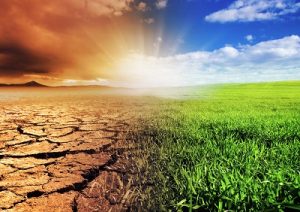Menu
Close
Eco-Anxiety: Despair is Rising
Jan 21, 2020
Guest post from CMHA National, cmha.ca
 Rising temperatures. Melting ice caps. Drowning polar bears. We don’t need to be told that there’s a climate emergency, and that it’s taking its toll on the planet. But the climate emergency is also a mental health emergency. The stats are powerful: psychological trauma from a natural disaster is forty times greater than trauma from physical injury. The human stories are troubling: in the Canadian North, Inuit hunters are reporting increased mental health problems, as ice conditions change and threaten the hunt for food. Climate scientists themselves are suffering from ecological grief and depression. And there are children who can’t sleep because they’re worried about the future.
Rising temperatures. Melting ice caps. Drowning polar bears. We don’t need to be told that there’s a climate emergency, and that it’s taking its toll on the planet. But the climate emergency is also a mental health emergency. The stats are powerful: psychological trauma from a natural disaster is forty times greater than trauma from physical injury. The human stories are troubling: in the Canadian North, Inuit hunters are reporting increased mental health problems, as ice conditions change and threaten the hunt for food. Climate scientists themselves are suffering from ecological grief and depression. And there are children who can’t sleep because they’re worried about the future.
“I think about climate change and its impact on mental health,” says Fardous Hosseiny, Interim National CEO of CMHA. “The climate emergency is not just a question of wildfires, or rising temperatures and rising oceans. What will we do about rising despair and of the mental health impacts of climate trauma?”
As a society, we needed a term to describe how we are feeling about climate change. Psychologists dubbed it eco-anxiety. And while it is not a clinical diagnosis, it is a real experience for many people, and especially youth.
What is eco-anxiety? It is a deep fear of environmental doom and human catastrophe, and can bring on the same kinds of symptoms as anxiety—like panic attacks and sleeplessness—and depression.
And while some psychologists say that fear is an appropriate and healthy response to the climate emergency, we can’t allow it to escalate or become the new normal. So, what can we do?
Here are some ways people have found to ease their sense of powerlessness in light of climate change:
Please note, if your experience is extremely troubling or disabling, consult a health professional.
- Let climate change guide the decisions you make—what you eat, how you travel, what you buy. Being in control of your own environmental footprint can counter powerlessness.
- Talk about climate change in your own circles. Sharing can help diminish fear.
- Be an activist. Get on board with a campaign or start your own group. Know that you are not alone.
- Demand that governments and business take action now.
- Demand that health professionals and even teachers know how to recognize and respond to eco-anxiety in children.
- Go with hope instead of doom. Catch hope from youth, whose activism is moving mountains. Believe that it’s not too late.